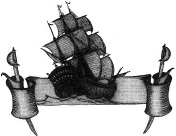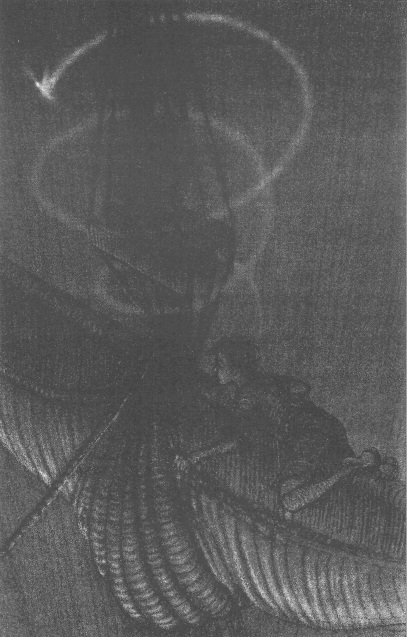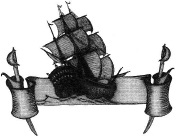Peter and the Shadow Thieves (11 page)
Read Peter and the Shadow Thieves Online
Authors: Dave Barry,Ridley Pearson
Tags: #Juvenile Fiction, #General, #Action & Adventure
“I must move the starstuff,” he said.
“Move it?” said Mol y, surprised. “But you said it was safe.”
“I thought it was,” said Aster. “But this afternoon I received some disturbing news from Ammm.” Mol y’s face brightened. “Ammm!” she said. “How is he?”
“He’s fine,” said Aster, smiling. “He sends his regards and asked me to tel you something.” Suddenly, Leonard began emitting strange squeaking, whistling, and popping sounds. Neither his wife nor his daughter was surprised; Leonard was simply quoting Ammm, who happened to be a porpoise. The sounds translated roughly to, “My teeth are green.”
Mol y laughed, for this was exactly what she, with her minimal grasp of the Porpoise language, had told Ammm a few months earlier—it seemed so long ago—when she stood barefoot on the deck of a sea-tossed ship at night, trying to get an urgent message to her father.
“Please tel Ammm that my Porpoise is improving,” she told her father. “But what was the disturbing news?”
“Wel ,” said Leonard, “it’s a bit muddled because Ammm got the message from the local Mol usk Island dolphins and, as you know, Dolphin and Porpoise are not quite the same. But the essence of it is that a strange ship arrived at Mol usk Island, and some men went ashore.”
“Is Peter al right?” Mol y blurted it out, then blushed.
“I don’t know,” said Leonard. “There was no mention of Peter. But I’m sure he’s fine. He’s a very capable boy.” Mol y nodded, stil blushing. Leonard continued: “The men, whoever they were, went ashore, had some kind of confrontation with the Mol usks, and then left.”
“So they’re off the island now?” said Louise.
“Yes,” said Leonard. “And they’re sailing on a course that wil bring them, if the wind holds, straight to England.”
“Oh, dear,” said Louise.
“Yes,” said Leonard. “They’re coming for the starstuff.”
“But,” said Mol y, “even if they do come for it, you said it was too wel guarded to be taken.”
“I’m afraid I may have been overconfident,” said Leonard.
“What do you mean?” said Mol y.
Leonard looked grim. “The dolphins told Ammm that one of the men on the ship was not a man.”
“I don’t understand,” said Mol y. “What
was
it, then?”
“The dolphins didn’t say. Only that it was with the men, but it was not a man. And when he passed over the water, the water became cold.” At those words, Mol y felt a chil herself. “What does that mean?” she said.
Leonard exchanged looks with Louise. “I’m afraid it means the Others have sent somebody…something…very formidable to retrieve the starstuff. Something with powers that are not easily countered. So I’m going to move the starstuff out of London, to a place known by only a very few of us. We wil guard it there until the time comes for the Return.”
“Why can’t you just return it now,” said Mol y, “before this…this
something
gets here?”
“I wish I could,” said Leonard. “But the Return can only happen at certain times. We have no choice but to wait for the next one.”
“When wil you leave?” said Louise.
“Tonight, I’m afraid,” Leonard said. “Within the hour, in fact.”
As his wife and daughter absorbed this unhappy news, Leonard rose, went to the large dining-room window, and beckoned. Seconds later there was a knock at the front door.
Waving off the servant who appeared instantly, Leonard went to answer the door himself. He returned to the dining room with three men, al wel dressed, al serious-looking, al quite large. One of the men held a leash attached to a dog, also quite large.
“Louise and Mol y,” said Leonard, “may I present Mister Cadigan, Mister Hodge, and Mister Jarvis. The dog’s name, I’m afraid, is Hornblower.” The men removed their hats, and everyone except Hornblower exchanged how-do-you-dos.
“These men wil be staying here until I return,” said Leonard. “They wil be outside most of the time. I’ve instructed Cook to feed them; they wil sleep in shifts in the attic. Mol y, until I return, you’re to go nowhere—
nowhere
—without one of these men accompanying you, do you understand?” Mol y had questions—many questions—but she understood that now was not the time to ask them. So she simply nodded.
“Good,” said Leonard. “Now, if you wil excuse me, I must make some preparations.”
He left the room, and the three men went back outside with Hornblower. When they were gone, Mol y looked at her mother.
“We’l be fine,” said Louise.
“But wil Father be fine?” said Mol y.
“Of course he wil ,” said Louise, smiling bravely. But Mol y saw the worry in her eyes.
In a half hour, Leonard, now dressed for travel, was ready to leave. He hugged Louise, then Mol y.
“I’l be back before you know it,” he said.
Louise turned away, dabbing at her face with a handkerchief. Leonard rested his hand on her shoulder for a moment, then turned to go.
To Mol y’s surprise, her father did not leave by the front door, as he almost always did. Instead he left by the service entrance at the rear of the house.
As
though someone is watching the house,
she thought.
Mol y fol owed her father back through the kitchen. He paused at the door, blew her a kiss, then turned and left. Mol y held the door open for a moment, watching until her father’s tal form had disappeared completely into the swirling fog of the dark London night.
Be careful,
she thought.


ONE LOOK BACK
A
S DAWN APPROACHED, Peter was growing desperate.
He’d been flying behind the ship for hours now—far longer than he’d ever remained aloft before—and it was a demanding kind of flying, not the effortless swooping Peter enjoyed so much on the island. He dared not slip too far back from the ship, lest he lose sight of it and become lost. But he also dared not get too close or too high, lest he be spotted in the moonlight.
He flew behind the ship, low to the water, only a few yards above the swirling wake, keeping a sail between him and the lookout high up in the crow’s nest. This positioning required intense concentration, and over the hours it took its tol .
Al at once, Tinker Bel ’s shril warning chimed in his ear. Peter startled, his bare toes catching in the churning wake. He pointed his arms up and strained higher, just in time to miss a wave. He’d dozed off, sinking to within inches of the wave tops.
That was close!
“Thanks, Tink,” he whispered, having regained some altitude. She didn’t answer, instead flitting off a few yards to resume pretending that she was ignoring him.
It’s a good thing she came along,
he thought.
Exhaustion wasn’t Peter’s only problem: he was also hungry, and very thirsty. He hadn’t thought about any of this when he’d left the island, but obviously he would need food and water. The only place he was going to get them was on the ship. But exactly
how
would he get them? He licked his salt-parched lips. He knew he’d have to solve the water problem soon.
Peter looked back at the reassuring shape of Mol usk Island. Each time he’d looked, as the night wore on, the island had grown smal er; now it was but a bump on the horizon.
Soon it would be gone altogether, leaving him and Tink alone with the ship and its dangerous inhabitants. This had seemed like such a good idea when he’d explained it to the others.
Now he wondered if he’d made a terrible mistake. For the dozenth time, he thought about turning back. If he did, it would have to be soon. Once he lost sight of the island, the ship would be his only hope.
Peter looked ahead and noted with alarm that the sky had grown lighter, changing from black to a dark blue. Soon sunlight would flood the sea, and Peter would be exposed.
He had to either turn back now or hide—and if he was going to hide, he had to find a place very soon.
Peter drew closer to the ship and drifted upward, toward the top of the sternmost of the ship’s four tal masts. The mast was intersected by five stout horizontal poles; Peter knew, from his one sea voyage, that these were cal ed yards. The ship’s sails hung from these yards; depending on the wind and the ship’s course, the crew would climb up and furl—
hoist up—or unfurl the sails as needed.
Peter noticed that the sail on the topmost yard was only loosely furled. He moved steadily closer, now directly above the stern of the ship. He kept his eyes trained down, watching the few men on deck at this early hour—the man at the wheel, an officer standing next to him, and a few sailors standing wel forward. They were al looking toward the promise of the sun on the horizon. Satisfied that no one was looking up, Peter flew high to the yard and settled gently onto its smooth, weathered wood. It felt very, very good to be sitting on something firm again, even if it was a hundred feet above the deck of a moving ship.
Lying on his stomach on the yard, Peter examined the furled sail, which hung from the yard in thick folds. Peter found that, by wriggling his body, he could squirm down into one of these folds, so it held him like a hammock. There, nestled in the rough canvas, he was wel hidden—that is, unless crewmen climbed up and unfurled the sail.
But for now, Peter was too tired to worry about that. His hunger and thirst would have to wait. For now: sleep. As his eyes fluttered shut, he heard a soft tinkling and saw Tinker Bel landing on the yard just above him.
“G’night, Tink,” he mumbled, so tired he barely got the words out before sleep pul ed him under.
Tink didn’t answer. She dropped down into the fold with him, settling into his tousled mass of reddish hair, her favorite place to rest. Almost instantly, she too was asleep.
Which meant neither of them was looking down.
Which meant neither of them saw when, in the waning moments of darkness, the black form of Lord Ombra slithered from a companionway onto the quarterdeck. Neither saw the hooded head move from side to side, as if searching, like a dog smel ing something in the air. Neither saw the hood pause as it faced the aftmost mast. Neither saw it slowly train its gaze upward, upward…only to stop suddenly when the first rays of dawn flooded the ship in an exhilarating light.
Recoiling from the glare, the dark form moved quickly back to the companionway. Then it slithered down into the bowels of the ship, but not before stopping to take one look back, and upward…
Directly at the furled sail.

OMBRA’S FEELING
L
ORD OMBRA GLIDED ACROSS the floor planks of the captain’s quarters, where thick wool blankets hung over the stern windows, preventing even a sliver of sunlight from penetrating. A lone lantern suspended from an overhead beam cast a dim yel ow light. The lantern rocked and tilted back and forth with the movement of the ship, sending shadows chasing along the floor and wal s.
Captain Nerezza, seated at a table beneath the lantern, studied a chart of the South Atlantic, with a hand-drawn speck representing Mol usk Island. He had not heard Ombra enter, but then he never did. He kept his eyes on the chart, hoping his uninvited visitor would go away.
But Ombra came closer, gliding among the moving shadows, though he himself cast none. Standing directly over Nerezza, he spoke, his voice a low moan.